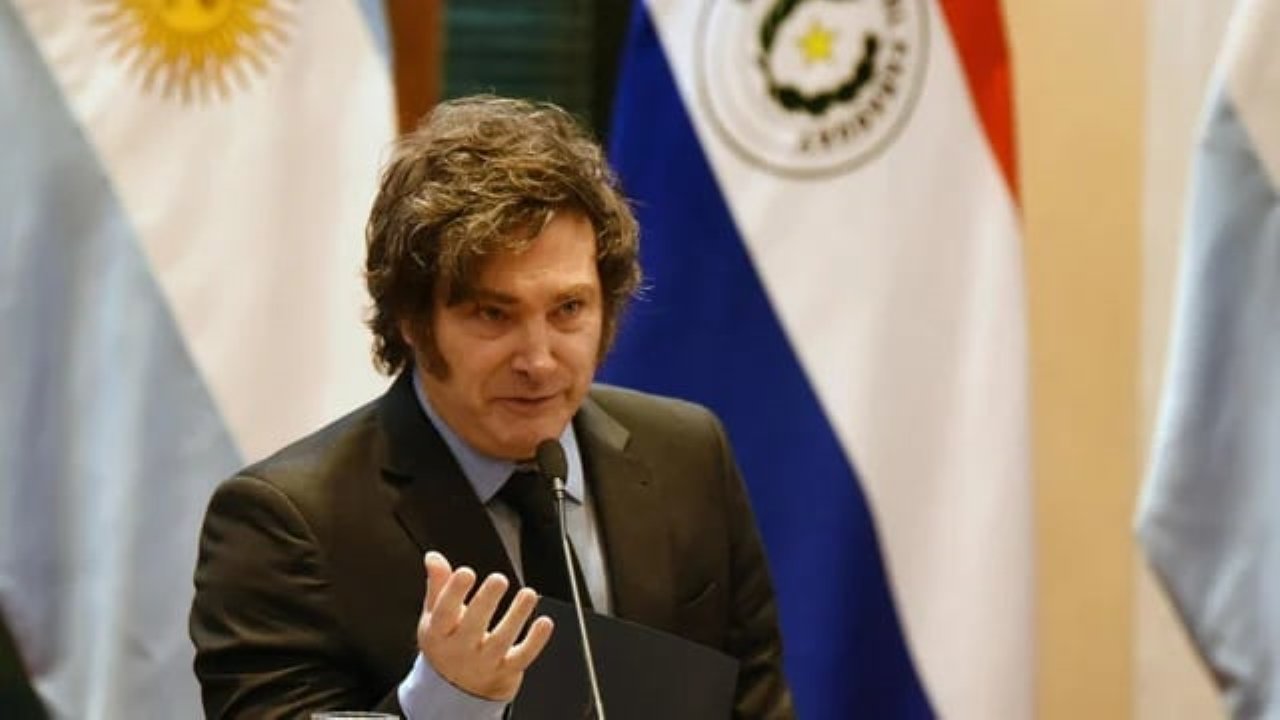WASHINGTON, 12 April 2025 (BSS/AFP) — Argentina has received a significant financial boost totalling $42 billion from three major international institutions, as its President, Javier Milei, declared a new era of unparalleled economic growth for the embattled South American nation.
The aid package includes:
| Institution | Amount (USD) | Purpose / Notes |
|---|---|---|
| International Monetary Fund (IMF) | $20 billion | Four-year bailout; $12 billion to be disbursed immediately |
| World Bank | $12 billion | $1.5 billion to be released immediately |
| Inter-American Development Bank (IDB) | $10 billion | Investment to support economic reforms and currency stabilisation |
President Milei, speaking in a televised address, described the influx of funds as transformative:
“Argentina will be the country with the strongest economic growth for the coming 30 years. The economy will grow like never before.”
Table of Contents
ToggleIMF Confidence and Reform Backing
IMF Managing Director Kristalina Georgieva praised Milei’s economic reform strategy, calling it “impressive progress in stabilising the economy” and describing the programme as a “vote of confidence in the Government’s determination to advance reforms, foster growth and deliver higher standards of living for the Argentine people.”
Finance Minister Luis Caputo detailed that Argentina expects to receive $19 billion from the IMF, World Bank, and IDB within the next 60 days. The initial $12 billion IMF tranche is intended to recapitalise the Central Bank, support the disinflation process, and end strict exchange controls in place since 2019.
Currency Liberalisation & Peso Stabilisation
The Central Bank has announced key monetary changes:
The peso will now float within a band of 1,000–1,400 pesos per US dollar.
Exchange controls lifted, including the $200/month cap on dollar purchases by citizens.
Exporters’ differential exchange rate abolished.
From 2025 onwards, foreign profit repatriation will be permitted and foreign trade payment deadlines relaxed.
As of Friday:
Official exchange rate: 1,097 pesos/USD
Unofficial “blue” rate: 1,375 pesos/USD
Inflation Concerns Remain
While the deal is a political win for Milei, economic anxiety lingers. According to economist Belen Amadeo:
“Milei needs this deal like he needs air. If instability returns and inflation spikes again, the population will retreat to the dollar.”
Argentina’s inflation trajectory remains a concern:
| Inflation Indicator | Value |
|---|---|
| Monthly inflation (March) | 3.7% |
| Monthly inflation (February) | 2.4% |
| Annual inflation (March) | 55.9% |
| Annual inflation (End-2023) | 211% |
Despite the substantial drop from triple-digit annual inflation, Argentina still faces one of the highest inflation rates globally.
Harsh Austerity Measures
Since assuming office in December 2023, President Milei has implemented sweeping austerity reforms:
Mass layoffs in the public sector.
Halving of government ministries.
Suspension of inflation-linked pension adjustments.
These measures helped Argentina post its first budget surplus in over a decade in 2024 but have also led to reduced consumer spending and job losses.
Looking Ahead
US Treasury Secretary Scott Bessent is scheduled to visit Buenos Aires next week to express American support for Argentina’s bold reform agenda.
Background:
This marks the 23rd IMF bailout for Argentina since joining the institution in 1956. The nation still owes $44 billion from a 2018 IMF deal—the largest in the fund’s history—which has since been renegotiated.
Argentina, Latin America’s third-largest economy, has a turbulent economic history marked by recurring defaults, currency crises, and hyperinflation. Whether this latest infusion of funds marks a turning point or merely delays deeper challenges remains to be seen.
